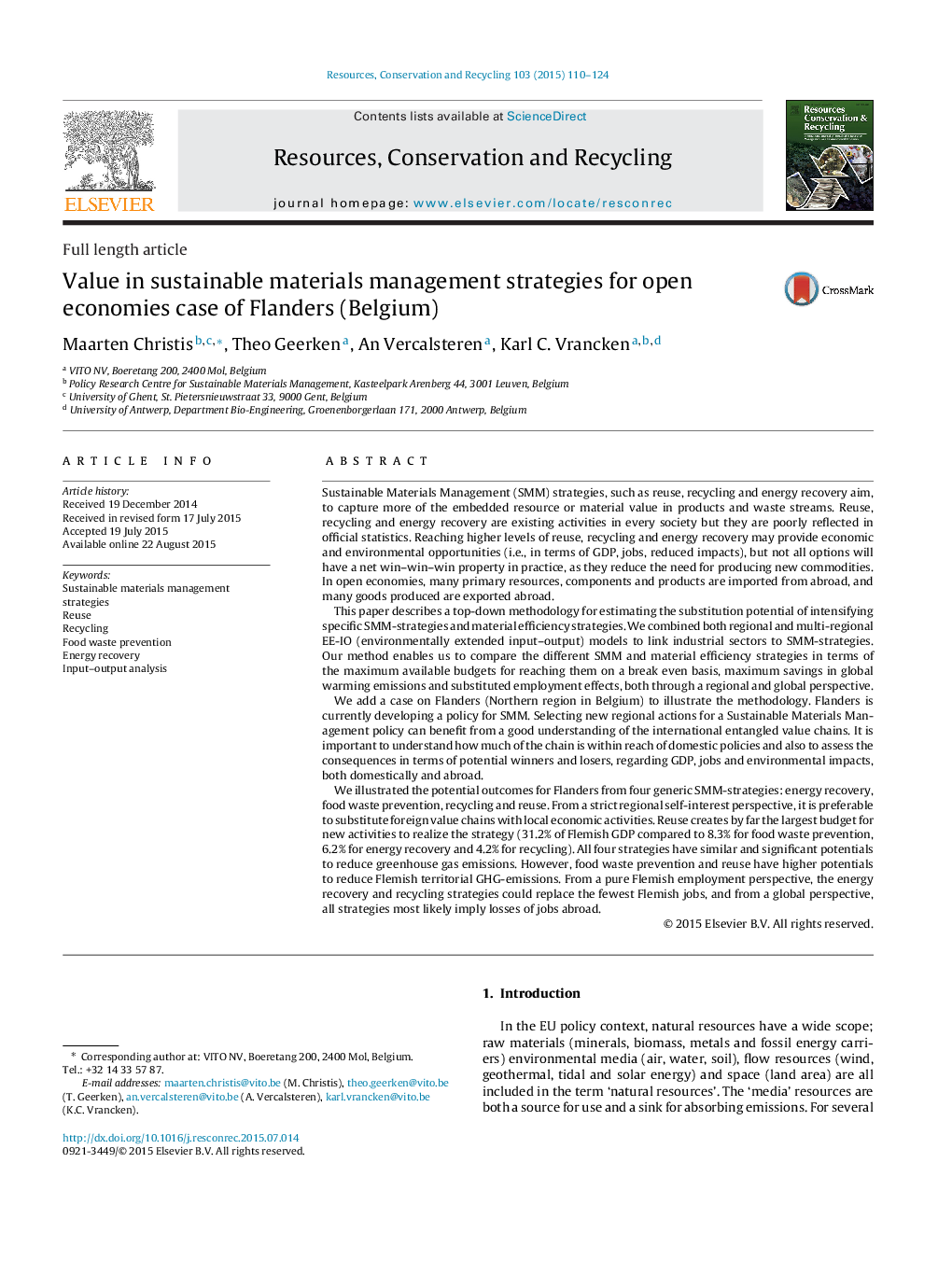| Article ID | Journal | Published Year | Pages | File Type |
|---|---|---|---|---|
| 1062777 | Resources, Conservation and Recycling | 2015 | 15 Pages |
•We developed a methodology to assess the potential of SMM-strategies.•Analyzed SMM-strategies: energy recovery, food waste prevention, recycling and re-use.•Substitution potentials vary between SMM-strategies and from a local/global view.•Reuse creates the largest maximum economic substitution potential.•Household consumption and investments contain large potentials for SMM-strategies.
Sustainable Materials Management (SMM) strategies, such as reuse, recycling and energy recovery aim, to capture more of the embedded resource or material value in products and waste streams. Reuse, recycling and energy recovery are existing activities in every society but they are poorly reflected in official statistics. Reaching higher levels of reuse, recycling and energy recovery may provide economic and environmental opportunities (i.e., in terms of GDP, jobs, reduced impacts), but not all options will have a net win–win–win property in practice, as they reduce the need for producing new commodities. In open economies, many primary resources, components and products are imported from abroad, and many goods produced are exported abroad.This paper describes a top-down methodology for estimating the substitution potential of intensifying specific SMM-strategies and material efficiency strategies. We combined both regional and multi-regional EE-IO (environmentally extended input–output) models to link industrial sectors to SMM-strategies. Our method enables us to compare the different SMM and material efficiency strategies in terms of the maximum available budgets for reaching them on a break even basis, maximum savings in global warming emissions and substituted employment effects, both through a regional and global perspective.We add a case on Flanders (Northern region in Belgium) to illustrate the methodology. Flanders is currently developing a policy for SMM. Selecting new regional actions for a Sustainable Materials Management policy can benefit from a good understanding of the international entangled value chains. It is important to understand how much of the chain is within reach of domestic policies and also to assess the consequences in terms of potential winners and losers, regarding GDP, jobs and environmental impacts, both domestically and abroad.We illustrated the potential outcomes for Flanders from four generic SMM-strategies: energy recovery, food waste prevention, recycling and reuse. From a strict regional self-interest perspective, it is preferable to substitute foreign value chains with local economic activities. Reuse creates by far the largest budget for new activities to realize the strategy (31.2% of Flemish GDP compared to 8.3% for food waste prevention, 6.2% for energy recovery and 4.2% for recycling). All four strategies have similar and significant potentials to reduce greenhouse gas emissions. However, food waste prevention and reuse have higher potentials to reduce Flemish territorial GHG-emissions. From a pure Flemish employment perspective, the energy recovery and recycling strategies could replace the fewest Flemish jobs, and from a global perspective, all strategies most likely imply losses of jobs abroad.
